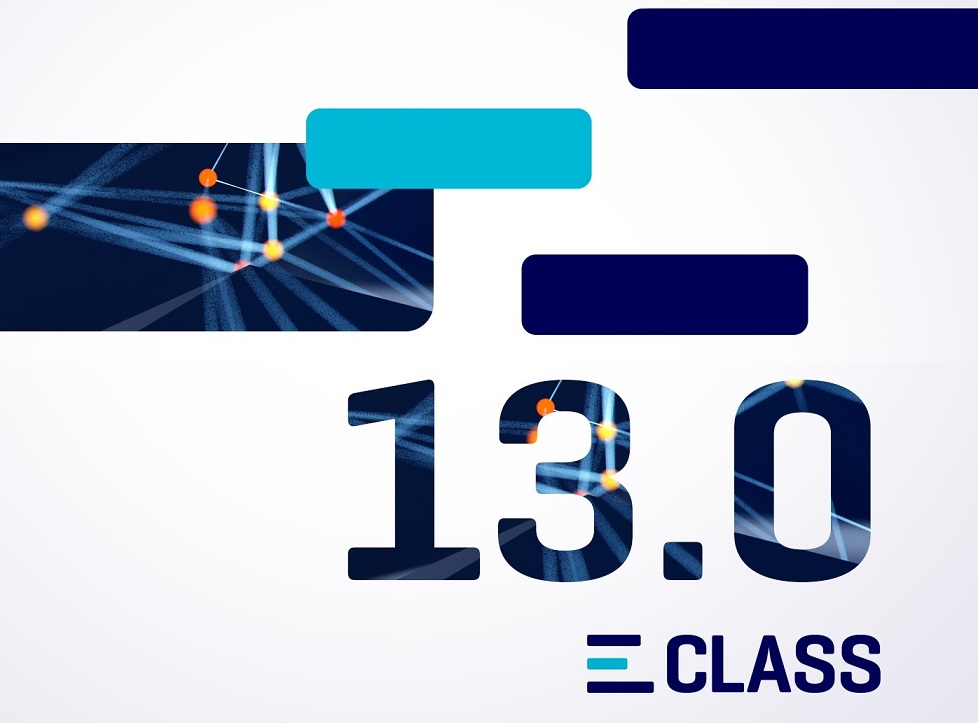New ECLASS version: More sustainability and comprehensive information in the engineering process
The number 13: What is considered unlucky in many places becomes a real stroke of luck with the new version of the ECLASS classification standard. With ECLASS 13 now available, planners benefit from numerous optimisations. Not only does the Product Carbon Footprint (PCF) make it possible to act more ecologically. In addition, important contents of digital catalogues such as delivery times or customs duties can now be securely described in ECLASS and output in BMEcat format.
1,050 new classes, 300 new blocks, 3,800 new characteristics, 5,600 new values: these are the key figures of ECLASS version 13. And it has more to offer than just the mere extension of the classification standard. Rather, numerous innovations bring real added value, both for manufacturers and for planners. The integration of the product carbon footprint and the possibility to describe logistical and commercial information are particularly noteworthy.
Focus on sustainability
A topic of growing importance in almost every area of life today is sustainability. This also has an influence on engineering processes. On the one hand, it is the clients who, for example, attach importance to a positive eco-balance for new machines or systems. On the other hand, it is also the planners themselves who want to act as ecologically as possible and are increasingly paying attention to their sustainability when selecting individual components. Until now, however, it was difficult to assess this in concrete terms.
With the integration of the Product Carbon Footprint (PCF) in ECLASS 13, the increasing importance of ecological action is now taken into account. The PCF is calculated by transferring the greenhouse gases produced during the manufacture of a product into equivalent values according to ISO 14067. The latter then describe the influence of the production of a component on climate change, thus giving an ecological footprint, as it were. This is now visible in ECLASS, so that a concrete comparison of different building components is possible against the background of sustainability. This makes it easy for planners to pay attention to the use of sustainable products. In addition, it is possible to mitigate the negative ecological footprint of individual components with others or to offset the greenhouse gases produced during the construction of plants or machinery.
Securely describe the contents of digital product catalogues in ECLASS
A special advantage for manufacturers results from the newly created possibility to enter complete data sets for digital product catalogues in BMEcat format in ECLASS. Until now, it was possible to describe the physical properties and the functionalities of a product in ECLASS, but information from the logistical and commercial area had to be obtained elsewhere. For example, a BMEcat catalogue also includes information on delivery times or packaging sizes, which are elementary for planning the required storage space. In addition, surcharges or customs duties have to be indicated.
Until now, this information could only be maintained externally for manufacturers in an external area, so that information had to be compiled from different places for a BMEcat data record. Thanks to the new possibilities in ECLASS, this is no longer necessary. Instead, all data is maintained together in MatClass and delivered together – an immense simplification of the description process that saves a significant amount of time.
Working group lays the foundation
The ECLASS classification standard is constantly being further developed in order to provide planners and manufacturers with the best possible support in the engineering process. The results of various working groups, which are concerned with the optimisation of the standard and its further dissemination, also flow into this process. For example, the addition of commercial logistical description options is based on a final paper of an ECLASS/BMEcat working group, in which our Managing Director Stefan Mülhens is also involved. “The use of standards is indispensable for a modern engineering process,” he emphasises. This makes it all the more important to advocate for the further development of ECLASS. “With the new ECLASS version, further added value is created that supports our goal of establishing the standard.”

